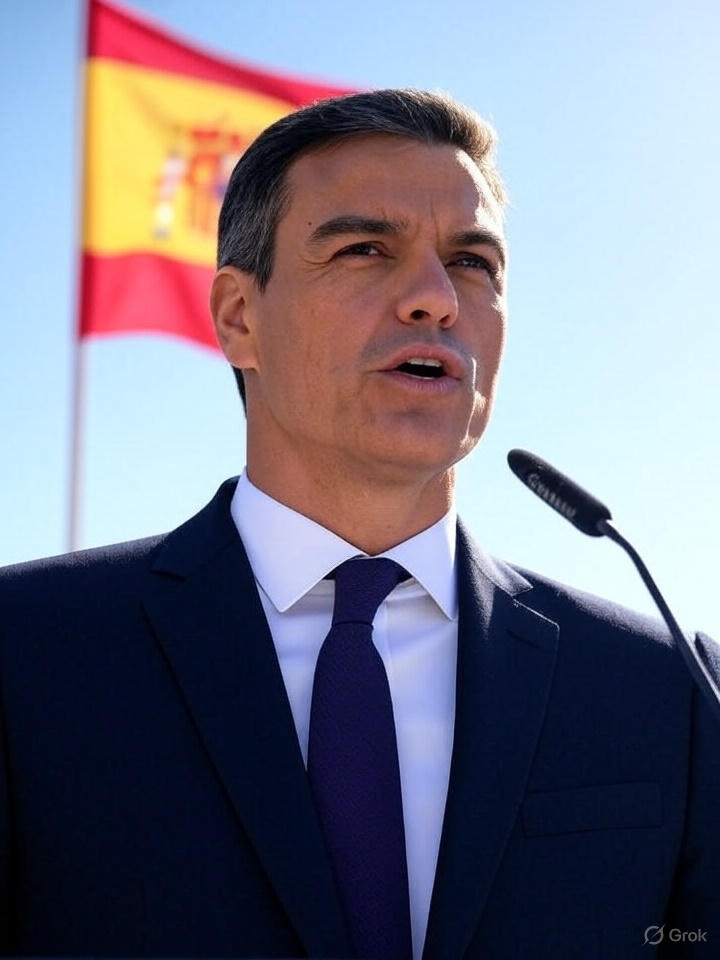Prime Minister Pedro Sánchez has positioned Spain to potentially boycott the 2026 FIFA World Cup if Israel advances in the qualification process, drawing parallels to the international sports sanctions imposed on Russia following its actions in Ukraine. This stance emerges from Sánchez’s broader policy advocating for Israel’s exclusion from global sporting events, a position he has maintained since May 2024. The decision aligns with Spain’s recognition of Palestine as a state in May 2024, a move joined by Ireland and Norway, which prompted Israel to recall its ambassador from Madrid. Sánchez emphasized that such measures serve to highlight international concerns, stating that Israel should not utilize major platforms to alter perceptions of its actions. The potential boycott follows a United Nations commission report that documented over 64,600 Palestinian deaths in Gaza, providing a factual basis for the policy. Patxi López, a prominent figure in the Socialist Workers’ Party, indicated that the government will evaluate the situation as needed, underscoring the commitment to address these issues through diplomatic channels. This approach mirrors the 2022 FIFA decision to bar Russia from competitions after 141 UN member states condemned its invasion of Ukraine, establishing a precedent for linking geopolitical events to sports participation. López noted that barring Israeli teams from events like Eurovision has already drawn global attention, reinforcing the strategy’s role in promoting awareness. Sánchez’s comments come amid heightened visibility on the Israel-Palestine conflict within Spain, including recent pro-Palestinian demonstrations that interrupted stage 11 of the Vuelta a España cycling race. These protests led to the stage being halted and declared without a winner, prompting discussions on balancing public expression with event security. Opposition leaders have engaged with the government on these matters, though Sánchez’s administration maintains that the focus remains on principled international engagement. The policy also intersects with Spain’s military procurement activities; in April 2024, the country signed a contract with Rafael Advanced Defense Systems, an Israeli firm, for pod systems used in aerial combat, with delivery scheduled through November 2027. This agreement was incorporated into Spain’s updated defense plan under the European Union’s rearmament framework, ensuring continuity in national security enhancements. The outcomes of this position include strengthened diplomatic ties with nations supporting Palestinian statehood, contributing to a shifting dynamic within the European Union on Middle East policy. Spain’s actions have amplified calls for consistent application of international standards, as evidenced by the UN’s findings and historical precedents in sports governance. By leveraging high-profile events like the World Cup, the government aims to foster broader dialogue on global responsibilities. Israel, absent from the World Cup since 1970, currently ranks third in its qualifying group, making qualification a realistic scenario that would test Spain’s resolve. This development bolsters Spain’s role in multilateral forums, encouraging other EU members to consider similar measures and promoting accountability in international relations. Furthermore, Sánchez’s strategy extends to economic and security domains, where ongoing contracts like the one with Rafael Advanced ensure Spain’s defense capabilities remain robust. The integration of these systems into aerial operations supports operational readiness without disrupting existing alliances. Public engagement, as seen in the Vuelta disruptions, has mobilized civil society, leading to increased participation in related advocacy efforts. The government’s response includes enhanced coordination with event organizers to safeguard competitions while respecting freedoms of assembly. Overall, these steps position Spain as a proactive voice in addressing complex geopolitical challenges, yielding outcomes such as elevated international discourse, fortified security infrastructure, and a unified approach to principled foreign policy.
www.34news.online
www.34news.online

